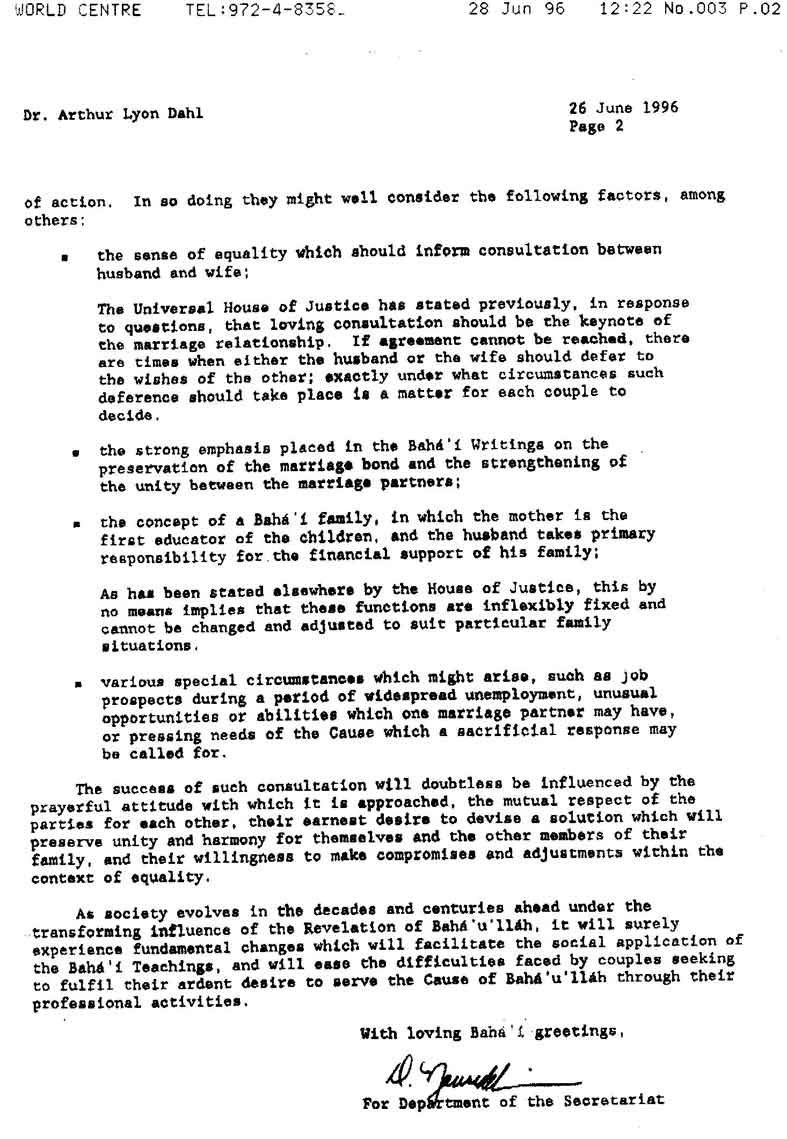



Adding to the problem is the widespread belief that human beings are intrinsically hostile and aggressive, and that these flaws make long-term global peace and stability unsustainable. It states, however, that the current international system of governance is flawed and is unable to eradicate the threats of war, terrorism, anarchy and economic instability. In the document, the Universal House of Justice asserts that world peace is not only possible but inevitable, and it is now within reach for the first time in human history. Some specifics by country were listed in 9 pages of the February 1988 issue of the Baháʼí News.

The statement had been translated into 76 languages and an estimated one to two million copies disseminated to people around the world. As of January 1988 the peace statement had been presented to 198 heads of state, 75 directly and 123 indirectly. It outlines the major prerequisites for, as well as the obstacles working against, the establishment of world peace. This point of view considers peace as more than the elimination conflict and war or the prohibition of the weapons and methods of war.The Promise of World Peace is a document produced by the Universal House of Justice of the Baháʼí Faith in October 1985, on the occasion of the International Year of Peace. Pursuing an interdisciplinary approach, the Bahá’í Chair draws upon a scientific basis of knowledge in order to advance initiatives toward structuring a more peaceful world. Our approach is based on an understanding that the complex topic of peace calls for a comprehensive approach and intervention. In particular, the Bahá’í Chair is committed to forging international research partnerships that significantly expand and enrich the prevailing, Western-oriented model of peace education. Professor Mahmoudi recognizes the value of a broad concept of peacemaking-which she refers to as a “worldview approach”-that addresses the many underlying issues involved and employs perspectives from diverse cultures. Through an active program of research and publication, the Bahá’í Chair and its affiliated faculty collaborate with a wide range of scholars, researchers, and practitioners.


 0 kommentar(er)
0 kommentar(er)
